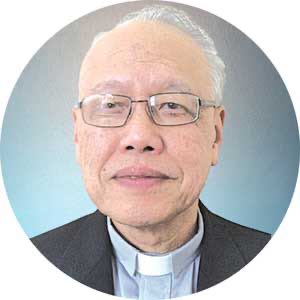The simple statement: “In the beginning God” (Genesis 1:1a) suggests at least three negative statements.
First, it denies atheism. Atheism is the view that God does not exist. About ten percent of people worldwide are atheists. But atheists cannot honestly prove that God does not live in any part of the physical universe. Genesis 1:1a states it very clearly that God was in the beginning. If God was in the beginning, then there was and is a God.
Second, it denies materialism. Materialism is the belief that only physical entities exist. There is no reality beyond the physical. The material universe is all there is. Genesis 1:1a states that God was in the beginning before creation. This sets God apart from creation and apart from the matter of which everything is made. Matter did not always exist.
Third, it denies pantheism. Pantheism is the idea that everything, the entire universe, is God, or is part of God. God is everything. But Genesis 1:1 tells us that God created the entire universe. If God created matter, then he is separate from it.
The simple statement: “In the beginning God” also suggests at least three positive statements.
First, it suggests to us that God is self-existent. God could not have derived His existence from anything else. He continues to exist independent of everything else. He is the uncaused cause. He is the source of all things. He is the eternally self-existent being who always was and always will be. The Bible never tries to prove the existence of God. It assumes his existence from the very beginning.
Second, it suggests to us that God is self-sufficient. Self-sufficiency means that God has no needs and therefore depends on no one. God does not depend on oxygen, light, heat, gravity and the laws of nature. He does not need any created being. He does not need helpers.
God has chosen humans to fill the earth (Genesis 1:28), and he has given Christians a commission to evangelize the world (Matthew 28:19-20), but he did not have to. God could have done this in other ways. He can do what he alone wants. Humans can count on God. We can rest in God’s self-sufficiency and so work effectively for him. God does work in and through his spiritual children.
Third, it suggests to us that God is eternal. God has no beginning and no end. He was, he is, he will be. He will continue as the eternal God even when history has ended. God created the world with space and time. Before he made the universe, there was no matter. The study of physics tells us that matter and time and space must all occur together: if there is no matter, there can be no space or time either. Thus, before creation, there was no “time”, at least not in the sense of a succession of moments one after another. Also, the God who never was born cannot die. When we abide in God, we are partaking of the eternal.
Our God is not an imaginary God. He is not a god of our own inventions. God was in the beginning. He created matter. He is not in matter or is matter. Also, God is self-existent, self-sufficient, and eternal.




